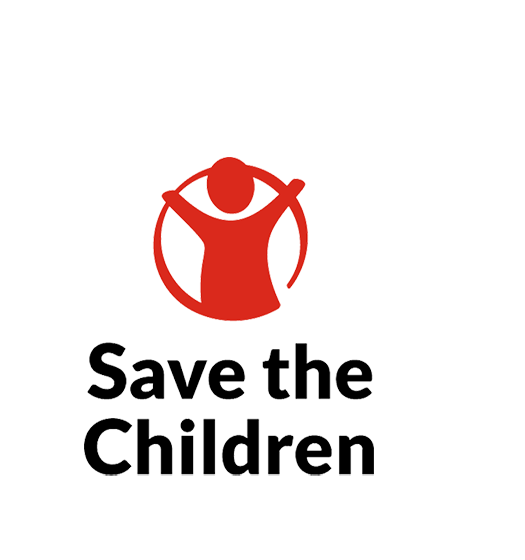
: Save the Children
: Nonprofits / องค์กรไม่แสวงหาผลกำไร
: 1322
: 31 January 2024
14 February 2024
GAP Analysis Consultant
Introduction
SCT has been operating in Thailand since 1979 and currently operates in 14 Provinces with field offices in Mae Sot and Pattani and headquarters in Bangkok. SCT’s education programme targets the most vulnerable children including migrant children, ethnic minority children, asylum seeking and refugee children. SCT leads the Education Consortium in the refugee camps along the Thai-Myanmar border and provides support to the Karen and Karenni Education Stakeholders Team (KKEST) to advocate for indigenous education priorities in the education policy reform in Myanmar with support from DFAT and the EU.
Background.
Under the consortium with SCI in the inclusive education and safe school program under DFAT and EUD fund, SCT aims to strengthen the capacities of consortium member staff, stakeholders, special education teachers and teachers to foster sensitization on GEDSI approaches and mainstreaming of inclusive education service. SCT is committed to identifying and considering the unique the needs, abilities, and opportunities of all children, youth and gender-diverse people. Yet, investments to tackle root cases of deeply entrenched gender norms remains limited .
Objectives: Purpose and Key Research Questions
The objectives of this consultancy are to deepen project’s understanding of gender and power inequalities in 7 Karen refugee camps, aligns and complements the project’s Theory of Change (ToC), and update the design and implementation of activities October-December 2023. Findings of the GAP Analysis will be complementary to the baseline process and used to develop a GAP Strategy, which will be implemented throughout the project cycle.
The overall objectives of this research include:
1.To deepen BEST-PREP VI understanding of gender and power dynamics and relations within programming areas in Tak refugee camps by examining the overall differences in power relations, socio-cultural barriers and constraints among women, men, boys, girls, and excluded groups (such as sexual and gender minorities and individuals with disabilities) that limit access to and benefits from resources, services, and economic opportunities, especially in education system. The ability of such groups to participate in community-level activities, fora, and decision-making will also be reviewed.
2. To generate baseline value related to gender indicator list below:
2.1 indicators in DFAT EiE
Outcome 1.1: % increase in Number and type of schools having gender and CwD inclusive
School infrastructure, teaching & learning materials and school supplies
Outcome 2.4: % of consortium education staff and key teachers with increased knowledge
on inclusion, after receiving capacity strengthening trainings
Outcome 3.1: % Of community-led safe school improvement plans implemented that are
consultative, conflict sensitive, disability inclusive and gender responsive
Outcome 3.2: % Of children from targeted TLCs (Myanmar) and schools (Thailand) who
receive appropriate child protection support which meet Safe School
quality
Output 3.1.2: # Of facilitated dialogue sessions provided to community for gender equality
in women employment and girl’s participation in education
Output 3.4.1: % of men and women teachers, school authorities, and RTTs with increased
knowledge on child safeguarding risks, and harmful gender norms affecting
the children.
Output 3.4.4: % of children who perceive of school safety in and around, and understand on
CSG risks in relation to SGBV, social and gender norms.
2.2 indicators in EU Protection
Output 4.1: % Increase of knowledge and skills of teachers, school authorities, and RTTs on
child safeguarding risks, and harmful gender norms affecting the children
Output 4.2: # of school-specific CSG policy developed and adopted based on SC’s CSG
standards with implementing measures and monitoring mechanism to protect
children from violence
Output 5: Increased level of children’s perception of safety in and around school, and
understanding on CSG risks in relation to SGBV, social and gender norms
3. To develop a GAP strategy to promote gender-transformative approach to overcome the barriers and empower the children and the local communities (including schools and partners) for safe and quality education. The development of a GAP strategy that will ensure that Activity interventions: (1) Do no harm: activities do not endanger or create negative impacts for participants, and (2) Empower all participants so that the highest- level program outcomes are achieved.
Scope
A consultant is expected to carry out the analysis in 4 selected refugee camps namely, Mae La, Umpium, Mea La Ma Lung, Tham hin. The data shall be collected from:
Key tasks
Expected Outputs / Deliverables
Qualification and expertise
The research has to be completed in February 2024. A field data collection would be mandatory and ideally would take place in December 2023 to January 2024 .
To be considered, the research team members together must have demonstrated skills, expertise and experience in:
kindly include a clear plan for language proficiencies in the team and/or translators included in the team
How to apply
We invite interested candidates to submit an application for the consultancy should include:
Period of submission: Until 14 February 2024.
Request full TOR through : Kwang.tangmanakit@savethechildren.org and nutcharin.panket@savethechildren.org
Applications should be sent by email to the following email address.
Submission through: admin.thailand@savethechildren.org